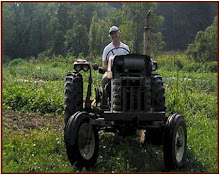(Excerpt taken from Organic Gardening Magazine, February-March 2009.)
This King of Greens is chock full of...
- Lutein and zeaxanthin, which are essential for preventing cataracts
- Magnesium, which lowers you susceptibility to migraines
- Sulforaphane, which is a destroyer of cancer cells
- Vitamin A, which protects your lungs and prevents heart disease
- Vitamin C, which boosts your immune function and protects against heart disease
- Vitamin K, which helps keep your bones strong and allows blood to clot.
Curly or ruffled, kale is the number one nutritious green, primarily because it's high in carotenoids, a class of phytonutrient (essential compounds found only in plant-based food). It's also teeming with vitamins and minerals, such as calcium and magnesium. Low in calories (just 36 per one-cup serving!), kale shares all the cancer-fighting properties of the brassica family. What makes kale king?
Kale is rich in lutein and zeaxanthin, which portect the plant from UV damage. They protect your eyes in similar ways. Studies show that a lutein-rich diet will reduce your risk of developing age-related eye disorders, such a smacular degeneration and cataracts.
Like its relatives, broccoli and cabbage, kale releases sulforaphane when sliced or chewed. Sulforaphane stimulates the liver to make enzymes, and these enzymes break down cancer-causing molecules.
Kale is also loaded with vitamins, especially vitamin K. Vitamin K allows blood to clot and also keeps your bones strong. Your body can store only small amounts of K, so eat kale frequently to defend against osteoporosis.
Vitamin A protects those exposed to either first- or secondhand cigarette smoke from developing diseases like emphysema. One cup of cooked kale provides more than 300 percent of your recommended daily needs for A.
Preparation Hints:
Cooking kale releases healthful carotenoids but can also destroy the anticancer properties. Avoid this by slicing kale, then letting it rest for five minutes. Then lightly steam the sliced leaves for exactly five minutes. This is just the right amount of time to release the carotenoids while preserving the other health properties.
Enjoy your greens this week!!














































































































































































No comments:
Post a Comment